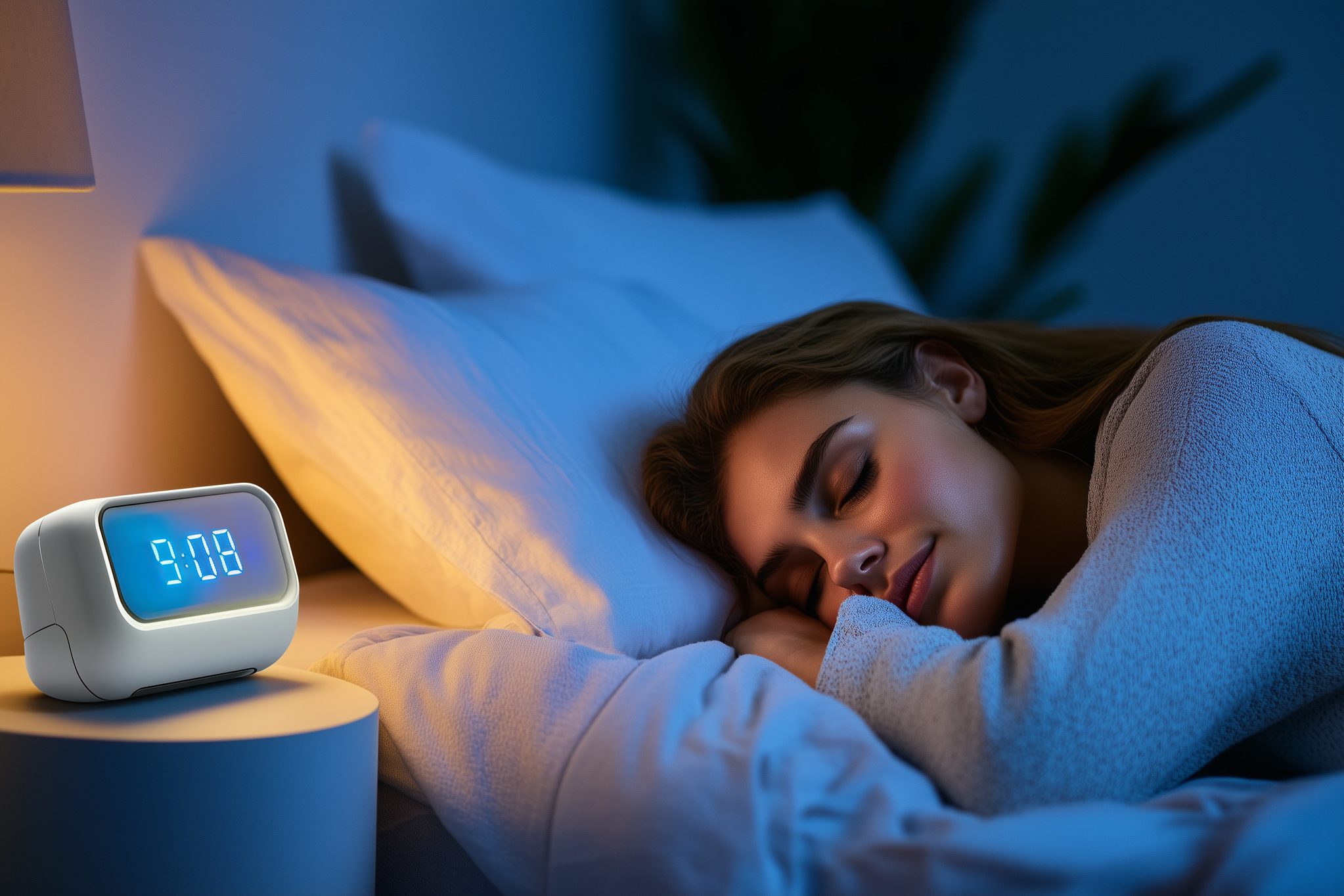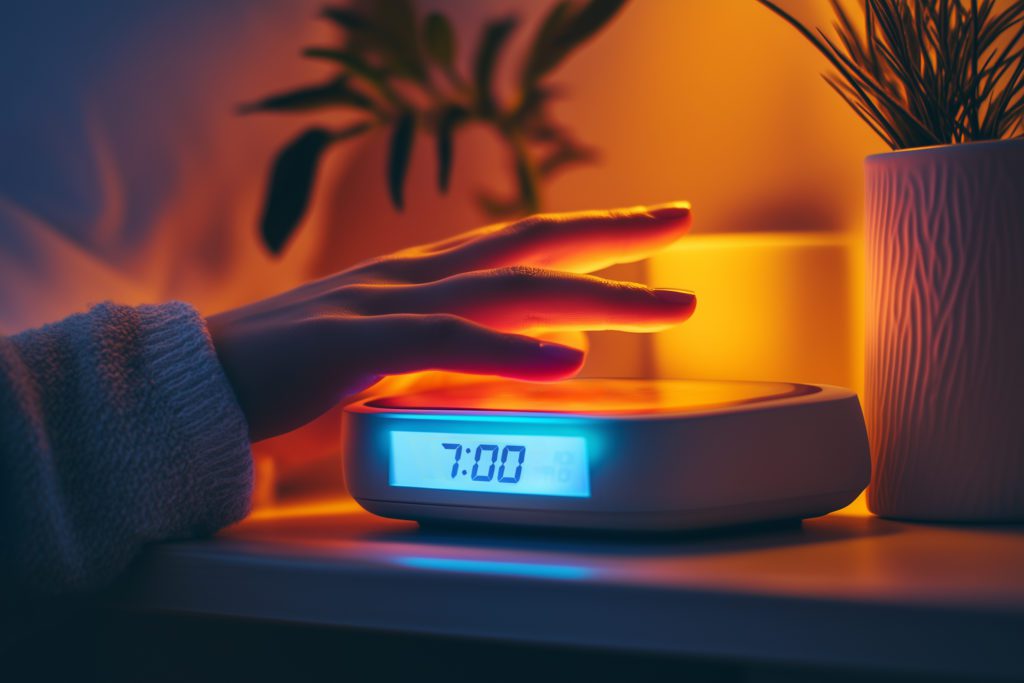
How to Calculate Your Sleep Schedule Depending on Your Age?
Discover how much sleep you need based on your age and optimize your rest with a sleep calculator for better health, energy, and productivity.

Getting enough sleep is crucial for health, happiness, and productivity. Yet, how many of us actually get the right amount of sleep? It's not just about the hours but also about syncing your sleep schedule to your unique needs, which depend on your age. The truth is, what works for your toddler won't work for your teenager, and your grandmother probably doesn't need as much sleep as your newborn niece. Understanding these differences can help you wake up feeling refreshed and ready to face the world.
To crack the code of optimal sleep, a sleep calculator can be your best friend. You might be wondering, "How much sleep do you need?" The answer lies in a mix of science and personal habits. By tailoring your sleep schedule to your age group, you can avoid the dreaded groggy mornings and late-afternoon slumps.
Why Do Sleep Requirements Change with Age?
Sleep isn't a one-size-fits-all deal. A newborn, for instance, naps more because their rapid brain development demands it. On the other hand, in a teenager, hormonal changes during puberty alter their circadian rhythms, making them feel tired later and crave extra sleep.
For adults, the demands of work, family, and social obligations often result in a trade-off with sleep. As we age further, the sleep efficiency we once enjoyed in our 20s and 30s tends to decline. Older adults often wake up more frequently during the night due to health conditions or medications.
A study from the Handbook of Clinical Neurology found that adults over 65 sleep less deeply compared to younger adults, leading to more daytime fatigue. In short, sleep is a dynamic process influenced by age, and understanding these shifts can make all the difference in planning your optimal schedule.
Recommended Sleep Duration by Age Group
Getting enough sleep is a cornerstone of health, influencing everything from memory to immune function. Let's break down how much sleep each age group really needs and why it matters.
Infants (0-12 months)
If you've ever envied a baby's ability to sleep anywhere, anytime, it's because they need around 12-16 hours of sleep daily. But, the sleep needs of an infant of less than 4 months vary widely.
Adequate sleep in infancy is crucial for brain development, laying the foundation for future learning and behavior. To support this, try maintaining consistent nap times and creating a calming bedtime routine.
Toddlers and Preschoolers (1-5 years)
Toddlers, with their endless energy and unpredictable tantrums, need around 10-14 hours of sleep. Preschoolers also thrive on consistency—predictable bedtime routines help them get the deep sleep they need for healthy physical growth and emotional regulation.
School-age children (6-12 years)
At this stage, kids need 9-12 hours of sleep, though homework, extracurriculars, and screens often get in the way. Sleep deprivation can impact their focus and memory, as shown in a study published in Advances in Medical Education and Practice, which found that children who slept less than recommended had lower academic performance. Limit screen time before bed, and encourage activities like reading to wind down.
Teenagers (13-18 years)
Teenagers need 8-10 hours of sleep, but let's be real—most of them are probably getting far less. Thanks to a shift in their internal clock (known as a delayed sleep phase), teens naturally stay up late. Combine that with early school start times, and it's no wonder they're exhausted.
A 2024 study in Sleep Medicine showed that teens who slept less than 7 hours were at higher risk for depression and anxiety. Therefore, please encourage them to maintain consistent sleep schedules, even on weekends.
Adults (18-64 years)
For adults, 7 hours is the sweet spot. Too little sleep can lead to irritability, impaired decision-making, and even long-term health risks like heart disease. If you are finding it hard to get enough sleep, Pillow can help you track your sleep cycles, helping you understand patterns and make adjustments.
Older Adults (65+ years)
Finally, older adults require 7-9 hours of sleep. While the total need for sleep decreases slightly, its restorative power remains critical. Now that you know how much sleep you need, let's discuss how to calculate your perfect sleep schedule.
How to Use a Sleep Calculator to Create Your Schedule?
A sleep calculator helps you figure out the best times to sleep based on your age and your natural sleep cycles. Here's how it works:
Sleep cycles last about 90 minutes, and waking up at the end of a cycle (rather than in the middle) helps you feel refreshed. A sleep calculator uses this information to suggest optimal bedtimes or wake-up times. For example, if you need to wake up at 7 a.m. and want 7.5 hours of sleep (five full cycles), the calculator will recommend hitting the pillow by 11:30 p.m.
Using a sleep calculator becomes even more helpful when tailored to your age group. For children and teens, it ensures they get enough rest for growth and learning. For adults juggling hectic schedules, it prevents groggy mornings caused by alarm clocks interrupting deep sleep. And for older adults, it can help compensate for the lighter, more fragmented sleep they naturally experience.
Need help finding one? Pillow can do the heavy lifting. Not only can Pillow calculate your sleep schedule, but it also tracks your sleep patterns over time, giving you insights into how well you're sleeping.
So, the next time you find yourself Googling, "How much sleep do you need?" Consider this: with a little help from technology, you can create a personalized sleep schedule that works for you, age and all.
The Bottom Line
Getting the right amount of sleep isn't just about setting an alarm. It's about aligning your sleep schedule with your age and unique needs. Whether you're a parent figuring out your toddler's naps, a teenager dealing with late-night homework, or an adult juggling responsibilities, understanding how much sleep you need is the first step toward better rest and health.
FAQ
What are the sleep stages during a full cycle?
A 90-minute sleep cycle includes four stages: Stage 1 (light sleep) is a brief transition from wakefulness, lasting 5-10 minutes, with slow eye movements and relaxed muscles. Stage 2 (deeper light sleep) slows heart rate and body temperature, featuring sleep spindles for memory processing. Stage 3 (deep sleep) promotes healing and growth with slow delta waves. REM sleep follows, involving vivid dreams, brain activity, and temporary muscle paralysis critical for learning and memory.
How long does a full sleep cycle last?
A full sleep cycle typically lasts about 90 minutes, although it can range from 70 to 120 minutes depending on the individual and their age. Each cycle progresses through stages of light sleep, deep sleep, and REM sleep, all of which are vital for physical restoration and cognitive function.
Is it bad if I wake up in the middle of a cycle?
Waking up in the middle of a sleep cycle can leave you feeling groggy and disoriented due to being in a deep sleep stage. This grogginess, called sleep inertia, can impair cognitive function and mood temporarily. Aligning wake times with the end of a cycle, when sleep is lighter, helps you feel more refreshed.
Why do teenagers tend to stay up late?
Hormonal changes during puberty delay the body’s natural sleep-wake cycle, causing teens to prefer late sleep and wake times. This shift often clashes with early school start times, leading to sleep deficits.
Why do babies and small kids sleep so much?
Sleep is crucial for young children as it supports rapid physical and cognitive development. Growth hormones are primarily released during deep sleep, aiding tissue growth and brain maturation.
Why do elderly people sleep less?
Older adults sleep less due to changes in circadian rhythms, reduced melatonin production, and health-related factors like chronic conditions and medications. Sleep efficiency also declines with age.

Written by
Dr Aqsa
As a Medical Doctor, Dr Aqsa, uses her knowledge to craft complex medical information that is understandable to the general public. For years, she has tried to improve health literacy and empower readers with valuable health knowledge through her articles, blog posts, and educational materials.
Download Pillow
Get help
Press & News
Legal
Connect
X (Twitter)
Company
Copyright © Neybox Digital Ltd.



